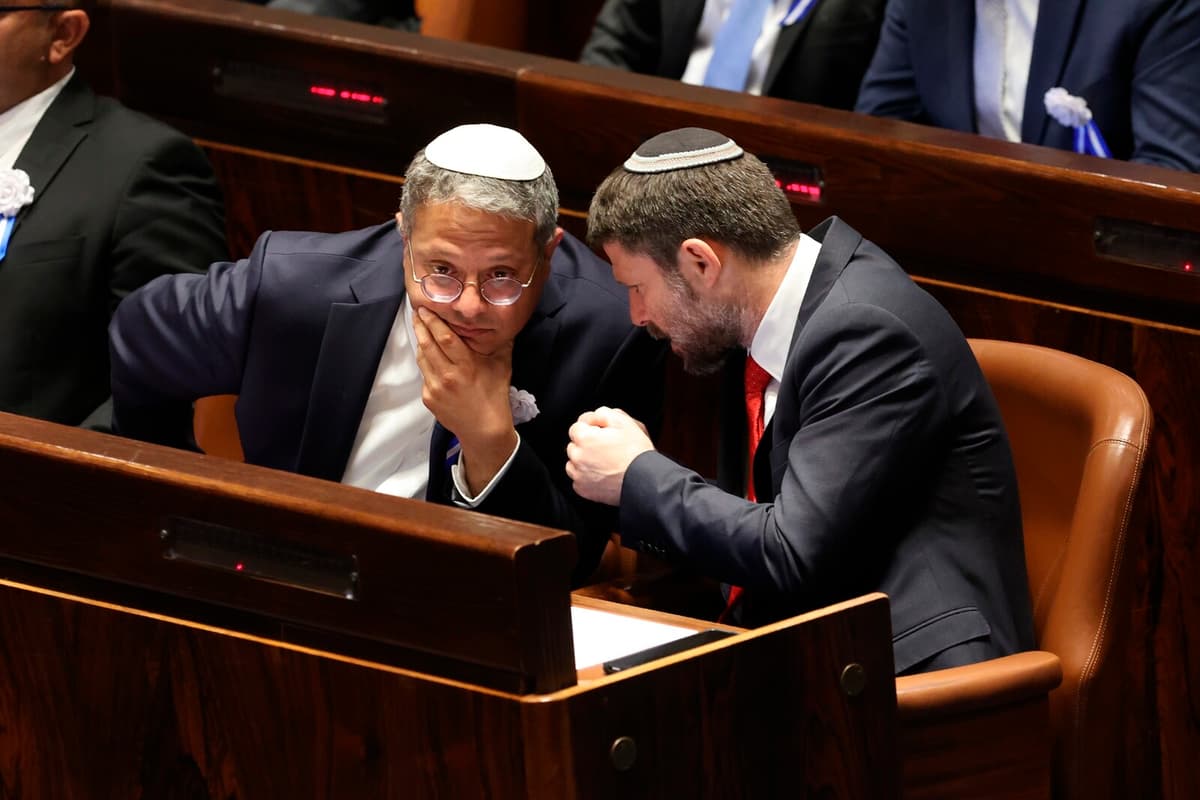The measures promised by Commission President Ursula von der Leyen in her annual speech on the state of the union have now been formally presented.
The content is a combination of sanctions, paused cooperation and freezing of trade facilitations for Israel.
–The goal is not to punish Israel. The goal is to improve the humanitarian situation in Gaza, emphasizes EU's Foreign Minister Kaja Kallas at a press conference in Brussels.
Trade and ministers
Among other things, it is proposed to introduce entry bans and freeze possible accounts for Israel's Finance Minister Bezalel Smotrich and Security Minister Itamar Ben-Gvir.
In terms of trade, it is proposed to freeze the terms of parts of the EU's cooperation agreement – something that is expected to increase the cost of trade by the equivalent of 2.5 billion Swedish kronor per year.
The sum is, however, relatively small, compared to Israel's total exports to the EU of over 180 billion kronor per year.
In need of support
The European Commission is simultaneously freezing the payment of 216 million kronor in support for various cooperation with Israeli authorities.
This decision is the only one in Wednesday's package that the Commission can take on its own. In other cases, clearance is also required from the EU's member states.
From Tel Aviv, the sanction plans are met with threats of countermeasures. Foreign Minister Gideon Saar describes the European Commission's recommendations in a post on X as "morally and politically biased", and continues:
"All measures directed against Israel will be responded to in an adequate manner, which we hope we will avoid having to do".
For the sanctions against ministers and settlers, full agreement is required. For the trade part, a yes from at least 15 countries representing at least two-thirds of the EU's population is needed.
Germany hesitates
The EU's former Foreign Minister Josef Borrell proposed sanctions against Ministers Smotrich and Ben-Gvir as early as summer 2024, but never got enough support among the member states.
Even this time, the resistance from countries such as Hungary and the Czech Republic suggests that it will be difficult to reach a decision. Hesitation from, among others, Germany and Italy makes it difficult for the trade measures to go through as well.
–Even if we see that public opinion in the member states is starting to shift due to the suffering in Gaza... the political lines remain in the same place as before, notes Kallas.
This is what the European Commission proposes to pressure for a better situation in Gaza:
* Temporarily freeze parts of the trade rules in its cooperation agreement with Israel – which is expected to result in an additional cost of 227 million euros per year (almost 2.5 billion kronor).
* Introduce sanctions against Israel's Finance Minister Bezalel Smotrich and Security Minister Itamar Ben-Gvir – considered the most extreme in the country's government.
* Introduce sanctions against three additional Israeli settlers and six organizations considered extremist – as well as an additional ten representatives of Hamas.
* Freeze financial support for certain parts of the EU's contacts and exchange with Israel – to a value of 19.7 million euros (216 million kronor).






